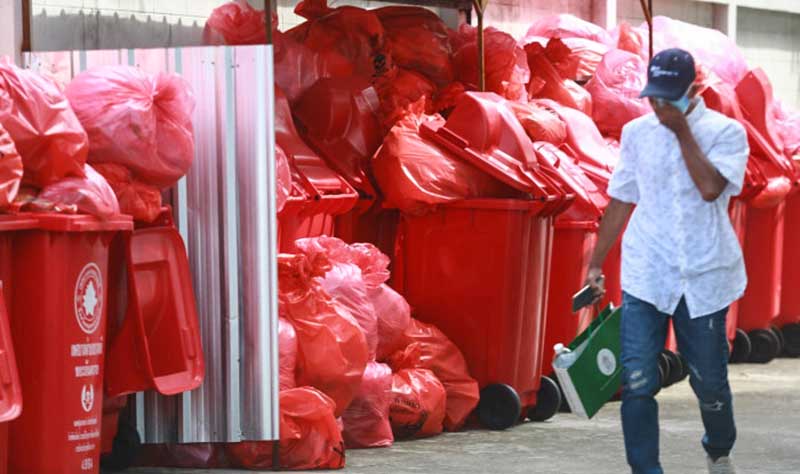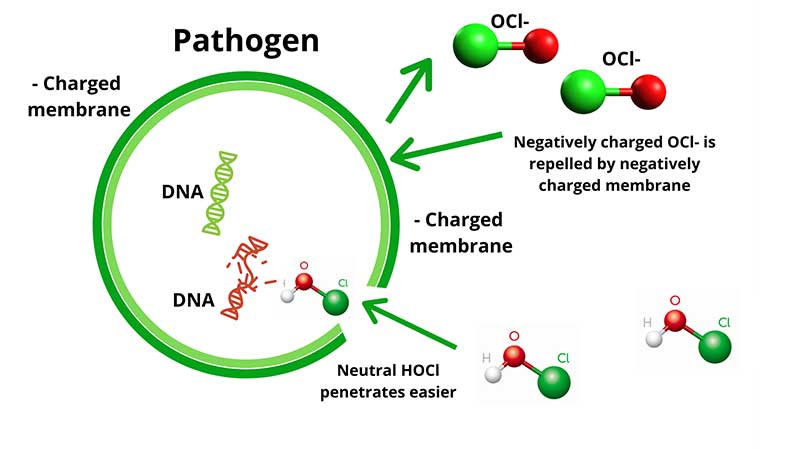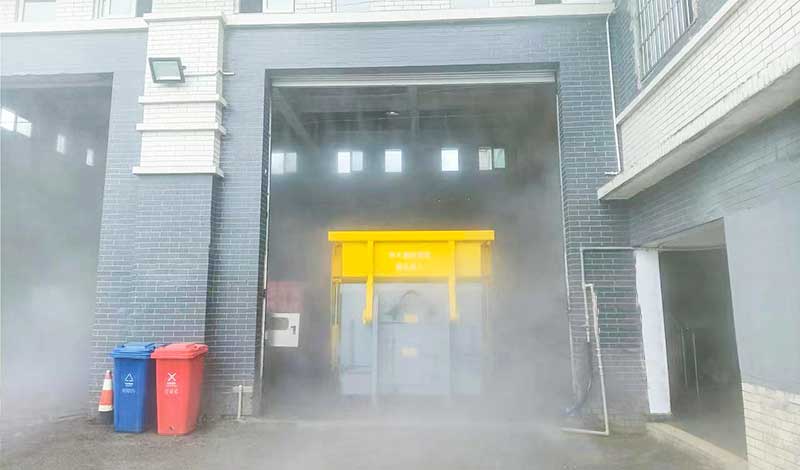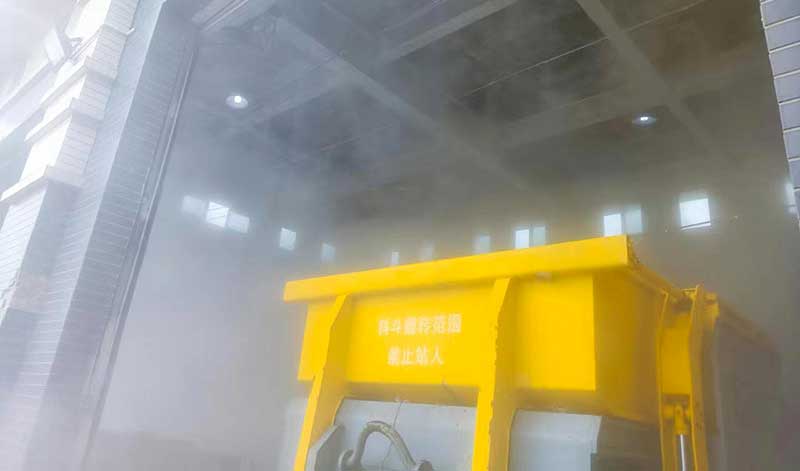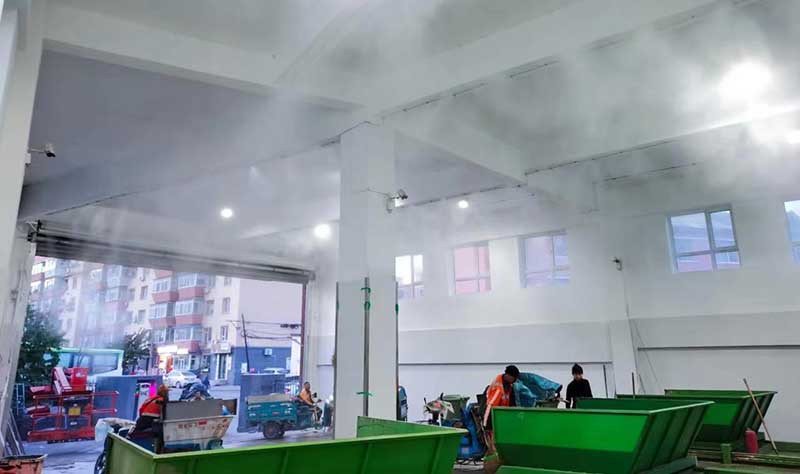Trash Room Odor Control System
Hygiene status of trash rooms
After 24 hours of piling up wet garbage, a large number of pathogens can be detected, such as cholera, hemolytic streptococcus, coliform bacteria, mycobacterium tuberculosis, hepatitis virus (A, E), HIV virus and other nearly 20 kinds of pathogens, and Garbage bins, drop-in points, transfer stations, and non-sealed packages of garbage in transfer vehicles have an unpleasant odor, and are particularly prone to breeding mosquitoes and flies. Under the action of a large number of microorganisms, the corruption and odor of domestic garbage are further exacerbated.
Garbage station smells bad
Solution:
1. The principle of hypochlorous acid sterilization and deodorization
Hypochlorous acid water is currently internationally recognized as one of the safest and most efficient high-level disinfection products. Because of its broad-spectrum bactericidal properties, no drug resistance, it can be restored to water after use, with no residue and no pollution. Developed countries such as Japan and the United States have been using it for more than 30 years. It is an efficient, green and environmentally friendly disinfectant, and has gradually been used in the sterilization and deodorization of garbage transfer stations, and air quality purification.
After many tests, it has been proved that hypochlorous acid is a strong oxidant and reacts with ammonia, hydrogen sulfide, methyl mercaptan and other odorous substances, and can quickly decompose garbage odor, fish odor, putrefaction odor, body odor, pet odor, garlic odor, Cigarette odor, formaldehyde, urine odor, etc., can be removed from the source to achieve the purpose of removing peculiar odors in the air. Equipped with atomization equipment, it forms fine mist to form a large area of sterilization and atomization, which has a good effect of deodorizing and improving air quality.
In 2013, Morinaga Dairy Plant in Japan conducted an experimental study on electrolysis water deodorization. The odor was collected in a sample bag, which was then mixed with a slightly acidic hypochlorous acid disinfectant, and then subjected to 30 intense vibrations and odor analysis using the FF-2020 gas recognition device. The results showed that the slightly acidic hypochlorous acid water could well eliminate the rotten odor of vegetables (methanethiol, dimethyl sulfur, dimethyl disulphide), toilet odor, (ammonia), livestock and poultry breeding odor, pungent acid odor (propionic acid), odor of rotten eggs (hydrogen sulfide), odor of rotten fish (trimethylamine), sweat odor (n-butyric acid). The removal of footwear odor (n-valeric acid, isovaleric acid) can reach about 60%. If the amount of hypochlorous acid disinfectant is appropriately increased, the effect will be improved to some extent.
2. Supporting the use of atomizing spray system
Hypochlorous acid water (HCLO) has a strong oxidizing ability. After contacting with microorganisms, it quickly destroys the cell membranes of harmful microorganisms, so that the proteins and DNA in the cells cannot perform normal biochemical activities, resulting in the death of microorganisms and achieving bactericidal effect. At the same time, hypochlorous acid water can effectively decompose ammonia (NH3) and hydrogen sulfide (H2S), and efficiently remove odor. At the same time, it can be matched with atomization spray system, the effect will be better.
Disinfection and deodorization of garbage trucks by atomization
Disinfection and deodorization of garbage trucks by atomization
Disinfection and deodorization of garbage room by atomization
3. Recommend model SHC-300
Please click to view more product information
Products Parameter:
| Concentration PPM | 3-500ppm |
| Flow | 300L/hour |
| Available chlorine concentration | 3-500mg/L |
| ORP | >800mv |
| Power requirements | AC220V 50Hz |
| Power | 200-600W |
| Current setting value | 0.1-2.2A |
| Electrolyte | dilute HCL |
| Water inlet pressure | 0.15Mpa---0.25Mpa |
| Electrolyzer life | 6000 hours |
| Size | 390*340*910mm |
4. Our Factory:
Aerial view of the factory

